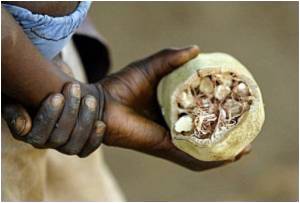The removal of group homes or institutions will not lead to better child well-being and could even worsen outcomes for some orphaned and separated children.

Children in institutions are as healthy and, in some ways, healthier than those in family-based care, according to the study, which was led by Kathryn Whetten, a Duke professor of public policy and director of the Center for Health Policy and Inequalities Research (CHPIR).
In the largest and most geographically and culturally diverse study of its kind, Duke researchers found there is great variation in how much children's well-being improves over time. The type of residential setting, either institution- or family-dwelling, was a poor predictor of change.
The study found that stronger predictors of child well-being were country, neighborhood or community, and differences in psychosocial characteristics such as age, gender, baseline emotional and nutritional status, and life course events.
Researchers also found that children in group homes were more likely to have their basic needs met.
The Positive Outcomes for Orphans (POFO) study based at the Duke Global Health Institute is following more than 1,300 orphaned and separated children living in institutions and another 1,400 children in family-based care. This sub-study includes three years of data from caregivers and children aged 6-15 across study sites in Cambodia, Ethiopia, India, Kenya and Tanzania.
Advertisement
With more than 2 million children living in institutions worldwide, this research challenges views held by children's rights organizations that institution-based caregiving results in universal negative effects on the development and well-being of children.
Advertisement
"We believe returning children from institutions to biological families may not result in the best outcomes, at least without significant intervention for the biological family, including supervision and follow-up," Whetten said.
Ultimately, Whetten believes the evidence suggests a need to "focus on improving the quality of caregiving in family settings and group homes, the well-being of caregivers and improving communities."
Source-Eurekalert









